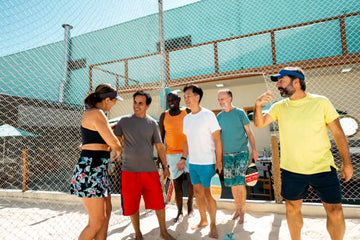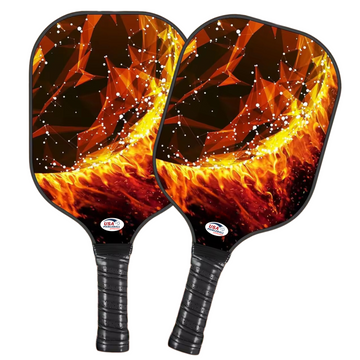Pickleball is more than just a sport — it helps build strong and supportive communities. With simple rules, it’s easy for people of all ages and skill levels to join. The game encourages connection, both on and off the court.
One of the biggest social benefits is how it brings together people from different backgrounds. It promotes teamwork and creates a friendly space where new friendships can grow. Over time, regular play leads to social events like local tournaments and group gatherings, helping people feel more connected in their neighborhoods.
Because it's easy to start playing, pickleball removes many barriers that keep people from joining. This makes it a great way for communities to stay active and enjoy meaningful social interaction. The mix of physical activity and connection is a big reason why the sport keeps growing in popularity.
Fostering Social Bonds Through Pickleball
Pickleball helps players connect by encouraging regular interaction. People form bonds through shared goals and activities. The friendly atmosphere allows for both small talk and deeper friendships to develop naturally.
Stronger bonds start with the right paddle — pickleball isn’t just a game, it’s how friendships form
Building Friendships On and Off the Court
Pickleball often leads to lasting friendships. Regular games build trust and familiarity. Players also connect during breaks or after matches, sometimes meeting up for coffee or meals.
These relationships can boost mental well-being by creating support systems. They also help players stay motivated to keep playing and stay active.
Community Events and Group Play
Pickleball tournaments and leagues welcome all skill levels, offering fun and friendly competition. Community centers and clubs host events, mixers, and clinics where people can meet and play together.
These events focus on fun and inclusion, not just winning. That makes everyone feel welcome and helps grow a strong, supportive community.
Welcoming Newcomers and Being Inclusive
Pickleball is known for being friendly to beginners. More experienced players often guide newcomers, making it easier to get started.
Many programs offer beginner sessions or “buddy systems,” which help people feel comfortable and part of the group. These inclusive environments promote respect and keep players coming back.
Pickleball’s Role in Strengthening Local Communities
The game creates chances for people from all walks of life to connect. It brings different groups together and builds relationships that go beyond the sport.
Bringing Together Different Age Groups
Pickleball is popular with people of all ages — from young kids to seniors. This age mix helps build respect and understanding between generations.
The game’s simple rules and low-impact style make it great for older adults while still fun for younger players. Families enjoy playing together, and mixed-age games offer mentoring and shared moments.
These interactions help reduce loneliness, especially for older adults who may not get much social contact otherwise.
From kids to seniors, the right pickleball paddle bag helps everyone show up and play together.
Supporting Neighborhood Engagement
Neighborhoods with pickleball courts often become more socially active. Games bring people outside, encouraging them to spend time together.
Over time, these courts become social hubs, helping neighbors form bonds and build a sense of safety and teamwork. This can lead to better community spirit and problem-solving.
Working With Local Organizations
Pickleball clubs often team up with community centers to host events or lessons. These efforts help more people — especially those in underserved areas — access the game.
Senior centers and schools also use pickleball to promote health and social activity. Some programs focus on youth development or senior wellness.
These partnerships help share resources and keep pickleball programs going strong. They also connect different parts of the community through a shared activity.
Mental and Emotional Benefits of Social Play
Playing pickleball with others supports mental health by giving people a chance to connect and build relationships. This helps people feel more emotionally balanced and included.
Reducing Social Isolation
Pickleball gives people regular chances to socialize, which is important for those who may feel alone. Local clubs or centers provide a steady group environment where people can meet others.
Games usually involve doubles and rotating partners, so players meet many new people. This widens their social circle and builds support networks.
Regular interaction can lower the risk of depression or memory problems. The mix of physical activity and connection helps protect against the effects of loneliness.
Boosting Confidence and Well-Being
Confidence starts with the right paddle — pickleball boosts your game and your well-being
Because it’s easy to learn, pickleball gives players a quick way to succeed and feel proud. Learning new skills and winning games boosts self-esteem and brings a sense of achievement.
Getting encouragement from other players builds confidence and keeps motivation high. It also helps reduce nerves about playing in social or competitive settings.
On top of that, the physical activity in pickleball releases endorphins — brain chemicals that improve mood. Regular play supports emotional health and builds the confidence to face new challenges.


